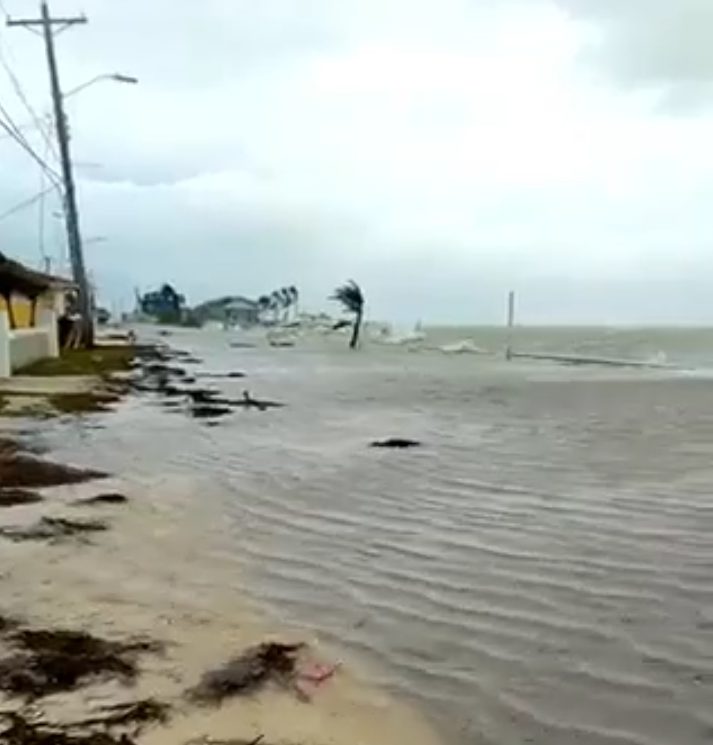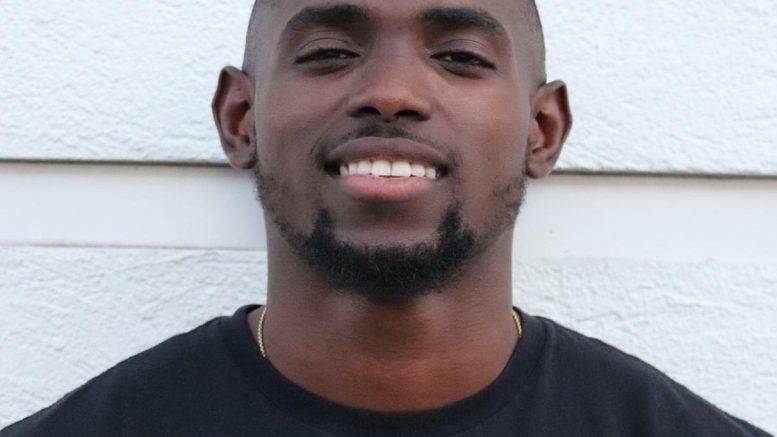Joshua Ceballos/Investigative Editor
Hurricane season may end in a couple weeks, but for some Bahamian students with families on the islands, the pain of this season hasn’t blown over.
A senior pre-med biology student at FIU, Quinston Stubbs grew up in Freeport, Grand Bahama, one of the islands battered by Hurricane Dorian this September. He lived with his parents and seven siblings in and around the beaches where his mother braided hair for tourists to make a living.
Stubbs said growing up in Freeport wasn’t always easy.
Even though both his parents worked, finances were still an issue in such a big household. Groceries and school supplies were expensive and hard to come by, but what he remembers most about his childhood are the good times spent by the water.
“My brothers and sisters and I were always on the beach while my mom worked, and the beaches were beautiful in the Bahamas,” said Stubbs. “That was the place we went where everything was behind us. It was a getaway from everything happening in the world.”
Hurricane Dorian would later wreck this very same beach.

Flooded streets in Freeport after Dorian. Image courtesy of Quinston Stubbs
Stubbs came to Florida in 2015 to study medicine, and transferred to FIU in 2018.
He said that he’s been through several hurricanes in and away from home, so he took it lightly when news of Dorian forming first came out.
“I didn’t think the hurricane would be that bad. I felt safe over here and I didn’t think anything was going to happen,” he said. “It got closer to the Bahamas I was still in contact with my family. They were telling me ‘the waters rising and the cars are moving.’ That’s when I realized this was more serious than I thought.”
Hurricane Dorian made landfall on the Abaco Islands in the Bahamas on Sunday, Sept. 1, 2019. It sat over the Bahamas for days, at times covering entire islands, devastating towns near the coastline and leaving dozens dead and hundreds homeless, according to the humanitarian organization Mercy Corps.
It was two or three days after Dorian left before Stubbs would hear from his mother and siblings, and another month before he would hear from his father who lived in an underdeveloped part of the island that was hit the hardest.
Not knowing what to do took a toll on him.
“I felt like there was nothing I could’ve done to help. It was scary knowing that the majority of my family stay on the outer edges of the island,” he said.
The fear for his family and then the stress of seeing his island destroyed started to harm his personal life in Miami.
“It kinda affected my schoolwork. My exam grades were pretty low. I noticed I had mood changes and different behavior patterns,” Stubbs said.
Stubbs goes to university on a merit-based scholarship from the Bahamian Ministry of Education. With all of the destruction, he was sure that his funds would be delayed.
“How am I going to get tuition?” he worried.

“This is one of the beaches I grew up on,” said Stubbs. The Hurricane flooded much of the coastline on Grand Bahama Island and the Abaco Islands.
In the midst of this turmoil, Stubbs reached out to FIU Strong, the University’s initiative that operates after disasters and events that affect students. FIU Strong offered Bahamian students the chance to reach out to them for assistance after Hurricane Dorian.
Stubbs said that after contacting the program, the University changed his tuition from out-of-state to in-state, reducing his cost of attendance. He said that having that reduction took a lot of weight off his shoulders, and helped him focus on what he could control.
He and other Bahamian students were also offered help finding employment off campus, as well as counseling services with Counseling and Psychological Services, which Stubbs took advantage of.
As of October, FIU Strong disbursed about $106,000 to 24 students in grants that range from a few hundred dollars to a few thousand dollars, according to an email from FIU Media Relations. Many of the students needed help with their tuition, while others requested help to pay for housing and books, they said.
The Bahamas are still under reconstruction after the storm, and Stubbs is planning to return home to see his family for the first time since the hurricane. In the meantime, he said that the help the University gave him has been invaluable.
“I’m truly happy and grateful for what FIU has been able to do to help all of us Bahamian students,” he said. “I truly appreciate what they’ve done for us and are still doing for us.”






Be the first to comment on "Bahamian Student ‘Truly Grateful’ For Support Post-Dorian"